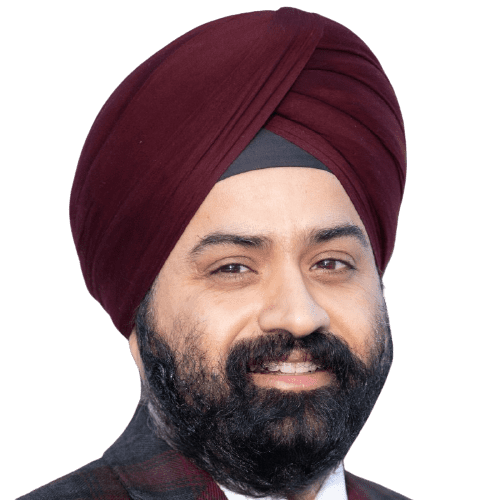
Roshi Singh Dandona
Global Head of Hedge Funds
Operational efficiency and control are what hedge fund CFOs need from outsourcing partnerships. Our report examines what drives successful solutions
When hedge fund chief financial officers (CFOs) turn to a service partner for data, they really want to drive through to insights and knowledge about the health of the function. This is predominantly achieved by keeping two objectives in mind.
First, the resulting insights enable the firm to do business more efficiently. And second, they want to create institutional know-how on trends to help them work for a more predictable future.
When it comes to outsourcing then, hedge fund managers shouldn’t simply look for a service provider but a solutions partner. But what does this mean in practice? And how can the hedge fund teams ensure they get it? Our recent report, The future hedge fund CFO: Preparing for disruptive tech and emerging asset classes, explores these questions.
Let’s say a fund performs a process in a certain way. It decides to outsource that process. The outsourcer can do the job with a 30% cost reduction without substantially changing the process itself. This is traditional outsourcing.
But today, truly valuable outsourcing has a different touch. Hedge fund CFOs seek partners with the potential to run that process in a superior fashion and in turn make them more efficient. Bottom line: they need partners who have good domain know-how with the ability to implement solutions and improvise.
For example, every back office function is reliant on the quality, granularity and timeliness of data. Like any other large institution, most big prime brokers/ custodians provide a number of different reports with multiple data attributes. Typically, each client will receive only a few of the reports – a subset of a total universe of reports (though this is unknown to them).
On the other hand a service provider has sight of a much larger proportion of the full universe of reports because they work on behalf of multiple clients. Importantly, it is the smart solution provider that will ensure the correct report contextualisation and provide advice accordingly, so that those selected are most suitable for a particular client.
Domain expertise is key for value outsourcing
A high-quality solution provider, such as Intertrust Group, focuses on the domain know-how to add value in all its engagements. Domain know-how goes beyond simply understanding the asset classes – it encompasses processing nuances, controls, reporting, technology know-how and more.
For example, an incorrect PNL for a portfolio can be a result of wrong data, bad pricing or even an issue with the technology’s mechanics of PNL calculation. A value-added partner like Intertrust Group understands the nuances and plays a crucial role not only in identifying issues but also in resolving them.
A provider who doesn’t know the domain well may struggle. So it follows that they won’t be particularly successful at adding value.
We have learned through our years of work with a wide variety of hedge funds s that applying solutions isn’t simply about finding and fixing issues. It’s really about identifying the root cause of problems to eliminate them for good.
Technology solutions and a higher degree of automation go a long way in enhancing productivity and bringing in more controls. But while technology is an enabler and the backbone for efficient functioning, a smart solution provider will be able to add value by ensuring the optimal way for that technology to be used, be it for processing or reporting.
Simply put, “technology is as good as its user”. Having a smart user with good technology is really what delivers the higher ROI. Intertrust Group is a technology-agnostic service partner, which makes an even more compelling proposition, as the funds are not bound by a single technology solution but can leverage our expertise across our own state of art technologies as well as any third-party products.
Wider exposure through working across a number of different technologies also helps boost the domain know-how, which is in turn reflected in the overall solutions ability of such high-quality service providers.
Solutions should add value
It may seem obvious but the objective of adding value should be emphasised. We are talking about an outsourcer’s aptitude and flexibility in addressing needs.
When we look at a client’s problems – having honed our expertise through working with a number of funds – the first consideration is how to eliminate pain points. And it is operational efficiencies and the resulting higher levels of control that matter most, not cost reductions from outsourcing, welcome as those might be. In the final analysis, operational efficiencies and controls enable the firm to give confidence to the investors it reports to.
The hedge fund CFO must find an outsourcer to help with growing reporting demands from its investors. Value addition comes in delivering on the needs of multiple stakeholders and should be key to identifying the right partner, taking into account people, process and technology.
At Intertrust Group we have built many applications across the spectrum to support our middle office and back office functions, bringing in a practitioner’s perspective along with a wide expsoue on a number of third party applications.
Why Intertrust Group?
- Seasoned team of solutions-focussed professionals with deep domain knowledge across a wide spectrum of operations, middle office and accounting functions
- Technology-agnostic service partner with an ability to contribute to smart processing framework for clients
- Services backed by a robust technology team and suite of proprietary applications helping to simplify complexity
- Agile partner to address today’s need and plan for growth
- Comprehensive and intelligent reporting suite to meet ever growing needs from multiple stakeholders
- Cutting-edge machine learning and AI – part of our bespoke hedge fund offering
- Specialists in both turn-key and bespoke solutions for back, middle and accounting functions for hedge funds and asset managers
Read the full report: The future hedge fund CFO: Preparing for disruptive tech and emerging asset classes